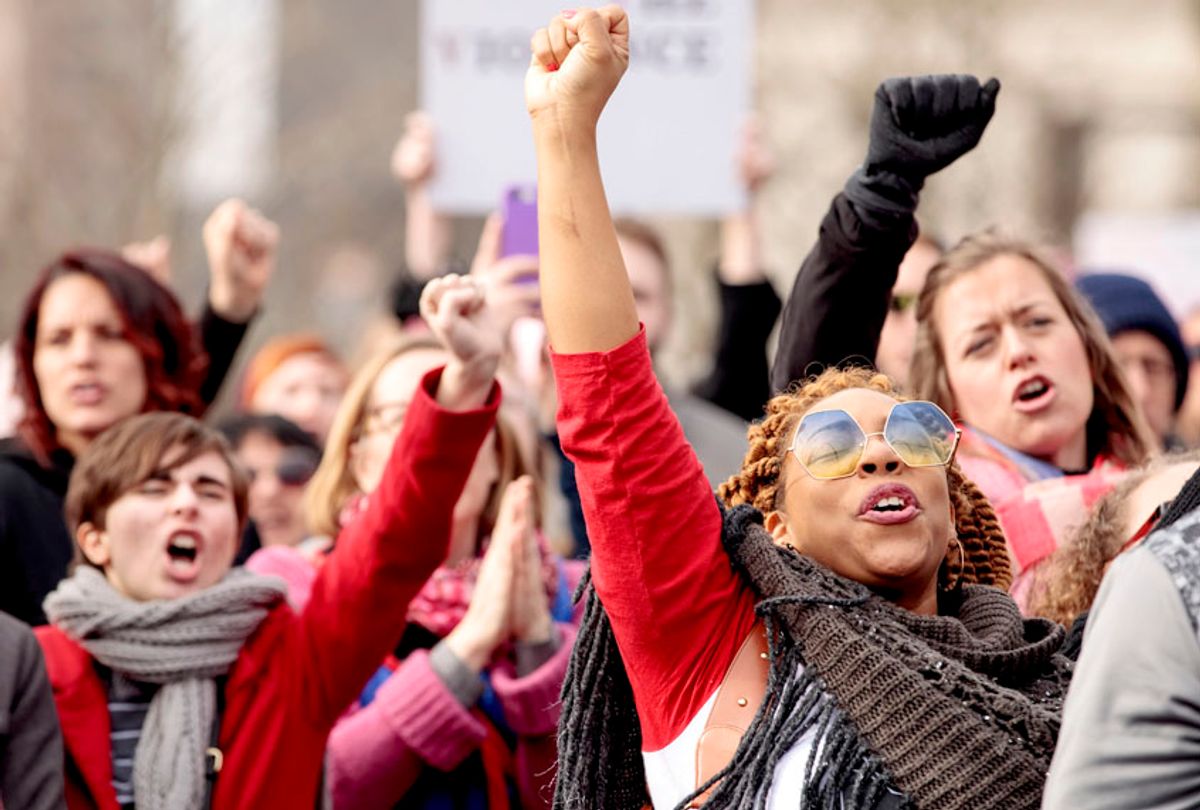It’s safe to say that American women are pretty pissed off these days. After all, every time we see a glimmer of progress toward equality and justice, the patriarchy swoops in to tamp it down. And every time we think we’ve reached peak fury over the blatant misogyny and injustice on display in our halls of government, the next news cycle comes along.
According to feminist journalist and author Rebecca Traister, the palpable anger fueling the resistance may feel raw, but it’s anything but new.
“This is part of why I look back at the history,” Traister told me in our our on-stage conversation at the Women Lit/Bay Area Book Festival. “It's finding the women and then excavating their anger, which has been totally, conveniently, obscured.”
Women’s rage at our own subjugation is interwoven in our nation’s story — not that you’d ever know it if you look at most American history textbooks. Take Abigail Adams, for example. Our history teachers are fond of telling the bittersweet tale of a demure Mrs. John Adams writing a letter to her husband as he attended the 1776 Continental Congress, in part to decide who will be considered “created equal.”
“Remember the ladies,” Abigail gently implores in her note.
And that’s usually where the story ends. Three handwritten words from a wife’s letter to her husband are supposed to represent a singular, timid voice that spoke up for “the ladies” in the months leading up to our independence — and was immediately ignored.
“Can you think of a lower bar?” Rebecca Traister asked the audience. “Just remember? That they exist?”
But here's the thing: Abigail Adams had a lot more to say to her husband. In fact, here’s what she actually said:
“Do not put such unlimited power into the hands of the husbands. Remember. All men would be tyrants if they could. If particular care and attention is not paid to the ladies, we are determined to foment a rebellion. And we'll not hold ourselves bound by any laws in which we have no voice or representation.”
In a single, fierce-as-f paragraph, Abigail Adams acknowledges the existence of systemic patriarchy and expresses the desire to tear it down and rebuild anew — using the same revolutionary measures our nation was founded upon.
“So consider what it means that that part is not read in the PBS documentary,” Traister said.
If you look at American culture, you’d think the only people who should be considered heroes for revolting are those who look like the founding fathers: white men in tricorn hats beating drums, spilling tea and objecting to taxes and big government.
But, as you’ll learn in the latest episode of "Inflection Point," revolutionary fury isn’t just for the founding fathers. And "ladies," even though we’ve been stewing in our ever-growing anger for the past 242 years, we have just begun to fight.
Listen to my full conversation with Rebecca Traister, author of the New York Times Bestseller "Good and Mad: The Revolutionary Power of Women’s Anger."
And when you’re done, come on over to The Inflection Point Society, our Facebook group of everyday activists who seek to make extraordinary change through small, daily actions.
Find more stories of how women rise up on Inflection Point, Apple Podcasts, RadioPublic, Stitcher and NPROne.



Shares